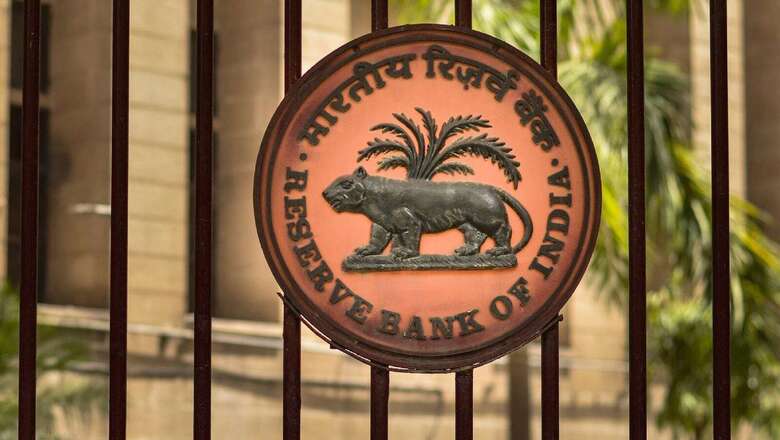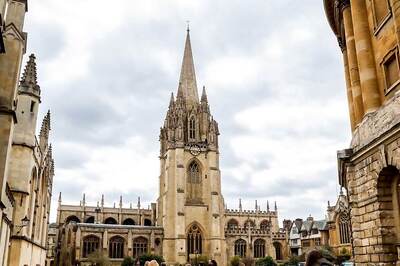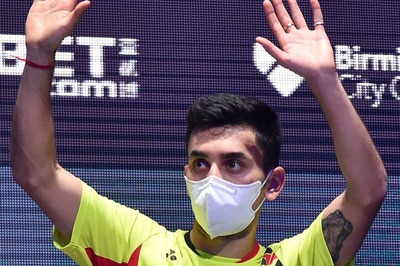
views
Even as the RBI’s Monetary Policy Committee is set to meet this week to decide on the key interest rates, the policy makers have a challenge to contain the price rise in the country, caused by high petrol and diesel prices, without hurting the economic recovery. Experts said the RBI may address the prevailing high inflation through “liquidity management” without changing the key repo rate.
The Reserve Bank of India (RBI) is mandated to keep inflation within the range of 2-6 per cent, while the CPI-based inflation rate in February stood at 6.07 per cent. The rate in January had stood at 6.01 per cent. In its previous bi-monthly monetary policy review in February, the RBI had projected the Consumer Price Index (CPI)-based inflation at 4.5 per cent for the current financial year 2022-23.
The six-member MPC will meet between April 6 and 8 to decide on the policy interest rates in the country. It will announce the outcome of the meeting on the last day of the meeting — April 8 (Friday).
HDFC Bank Chief Economist Abheek Barua said the RBI is expected to revise upward its inflation projection for the current financial year by 75-80 basis points. “The central bank will try to control inflation through liquidity management without hurting the economic recovery by changing repo rate.”
Liquidity is the cash available in an economic system and the central bank manages it through open market operations (OMOs), cash management bills and reverse repo operations, apart from controlling the printing of new currency notes.
Barua also said the MPC is likely to keep repo and reverse repo rates unchanged but will revise its policy stance to ‘neutral’ as compared to ‘accommodative’ earlier. “High inflation rates in India could be a problem for household demand in the economy.” A basis point is equal to a 100th of a percentage point.
Similarly, Bank of Baroda Chief Economist Madan Sabnavis said that on the inflation front, the RBI will wait and watch this time and raise interest rates by the end of the year in case inflation rises further.
“The repo and reverse repo rates are expected to remain unchanged this time but the MPC will change its stance to ‘neutral’ from ‘accommodative’ currently, given the inflation scenario in the country,” Sabnavis said.
Petrol and diesel prices have increased over Rs 8 in the past two week. After a four-month hiatus, the petroleum prices in the country have been rising following the Assembly election results in five states last month. The ongoing Russia-Ukraine war has pushed up the crude oil prices to a seven-year high.
Crisil Chief Economist D K Joshi said the high inflation in the country is a cause for worry and is largely due to external factors, including the ongoing Russia-Ukraine war. “The RBI’s MPC is expected to keep the repo rate unchanged but may resort to raising reverse repo rate by 25 basis points.”
GDP Growth Projections
The experts also said the central bank is also likely to revise downwards its gross domestic product (GDP) forecast due to supply chain disruptions and global uncertainties caused by the Russia’s invasion in Ukraine.
After the last policy meet in February till now, rating agencies India Ratings, Moody’s and ICRA have revised downwards their growth projections for India due to elevated commodity prices and fresh supply chain issues arising from the Russia-Ukraine conflict. Fresh COVID-19 wave in China also weighed.
India Ratings has revised downwards its GDP growth forecast for 2021-22 to 8.6 per cent from the consensus 9.2 per cent projected earlier. Moody’s Investors Service has cut India’s growth forecast for 2022 to 9.1 per cent from the earlier estimated 9.5 per cent. ICRA has lowered India’s FY23 GDP growth forecast to 7.2 per cent from an earlier projection of 8 per cent. FICCI expects the GDP to grow 7.4 per cent this financial year.
Read all the Latest Business News and Breaking News here


















Comments
0 comment